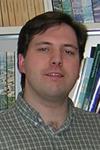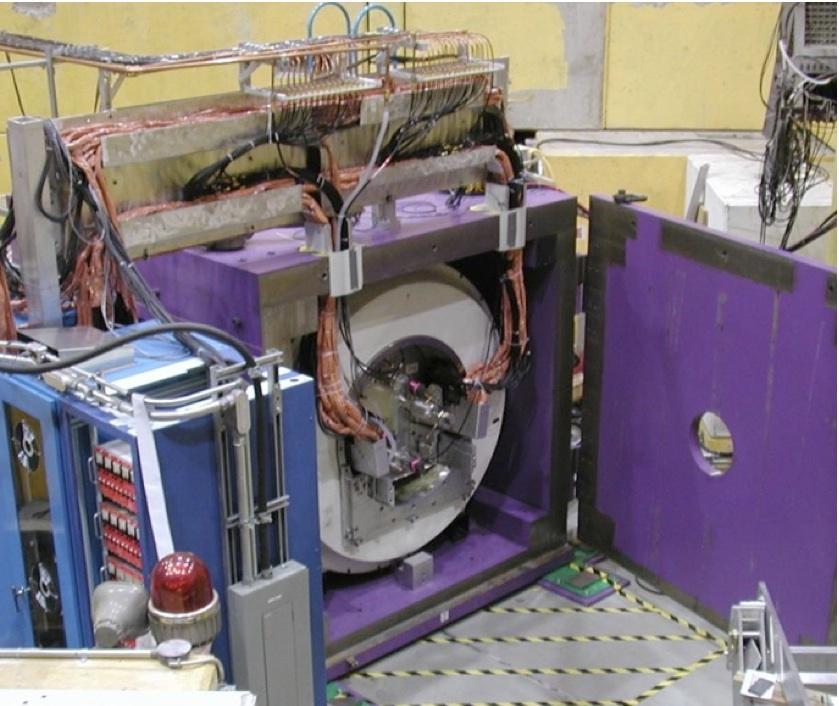 |
| Rob MacDonald |
Congratulation to Rob MacDonald of the University of Alberta, winner of the 2008-2009 Division of Nuclear Physics (DNP) Thesis Prize. This prize is given in Experimental or Theoretical Nuclear Physics to a student who is obtaining his/her Ph.D. degree from a Canadian University in the current or prior year. Rob's thesis "A Precision Measurement of the Muon Decay Parameters Rho and Delta" was based on doctoral research performed at TRIUMF with TWIST, under the supervision of Art Olin.
Rob's thesis reported intermediate results for the TWIST experiment. It was the quality of his analysis and dissertation that brought attention to his work. The thesis was not only useful for committee members-not all of whom were from his field-but also served as a useful reference document for the TWIST group as the experiment continued.
Rob commented, "good science and good communication are very important to me. The last stages of my thesis work were devoted to checking every corner of our analysis and turning over every rock, looking for potential problems and making sure we accounted for every possible source of error." The result was a measurement Rob was confident he could support and defend. Receiving this prize meant success in reaching these goals.
However, Rob encountered difficulties that had the potential to completely derail his thesis work. Just as he finished his Masters degree and was getting ready to move back to Vancouver again, Nate Rodning, his supervisor from the University of Alberta had passed away. This was a terrible setback for the entire TWIST group. Rob reflected on the loss of Nate Rodning, "he was an excellent leader, and when he got interested in something it was infectious". Losing the support and guidance of a supervisor at any stage of research can be detrimental to the work.
While working on his Ph.D. thesis, Rob split his time between TRIUMF and at the University of Alberta, where he taught first-year physics labs and tutorials. "These were both excellent experiences in teaching. With close interaction with the students, I could come to really understand how they were thinking and what they needed in terms of help and instruction. This has served me very well as a teacher and was worth the hassle [of travelling]!"
TRIUMF's Art Olin speaks to Rob's talent and skill. "Rob was a wonderful student to supervise. His style was very deliberate and self-directed. He documented his work very carefully so the entire group could vet it. This was especially important when he was at U of A. I was concerned about supervising a U of A student while having no connection to the university, but his co-supervisors [from the University] Roger Moore and Manuella Vincter took care of this admirably."
Rob received his B.Sc. from University of Victoria in 1999. During that time, he was enrolled in the physics co-op program where he became involved with E614, later renamed TWIST. Rob then enrolled at the University of Alberta where he received both his M.Sc. and Ph.D. with TWIST.
Currently residing in his hometown of Edmonton, Rob continues teaching at the University of Alberta as a sessional instructor for a first-year physics course. Additionally, he is a postdoctoral fellow with the PICASSO experiment, studying particle astrophysics. "The research continues to be interesting," says Rob, "I'm sure it will continue to be a part of my career in one form or another, but I think my main interest will always be in teaching. I've always loved teaching, especially discussing where physics intersects with other aspects of life".
Rob will receive a cash award of $1,000 from the DNP and will be invited to give a talk at the Winter Nuclear & Particle Physics Conference this February in Banff. A two page summary of Rob's thesis work will appear in an upcoming issue of Physics in Canada, which can be found here.
About TWIST...
The TWIST experiment studies the radioactive decay of a muon, tracking and analyzing the momentum and direction of the electron and two neutrinos each muon releases upon decay. Particle physicists have developed very precise predictions about how and what the odds should be when an electron will come out at any given momentum and direction. By tracking numerous muon decays, TWIST is able to measure what these odd actually are. Comparing measurements to the predictions teaches us how radioactivity itself functions, and whether there might be more going on than what our standard model says.
With fewer than 40 members, TWIST is a fairly small experiment which meant that as a graduate student Rob was quite involved in many aspects of the experiment: detector construction, software development, operating the experiment itself, data analysis, etc. "This is rare in this field" Rob states, "many collaborations have hundreds of members!" Specifically, for his thesis work Rob was responsible for guiding and synthesizing measurements using data from 2004.
 | |
| TWIST |
-- Melissa M. Baluk, Communications Assistant
